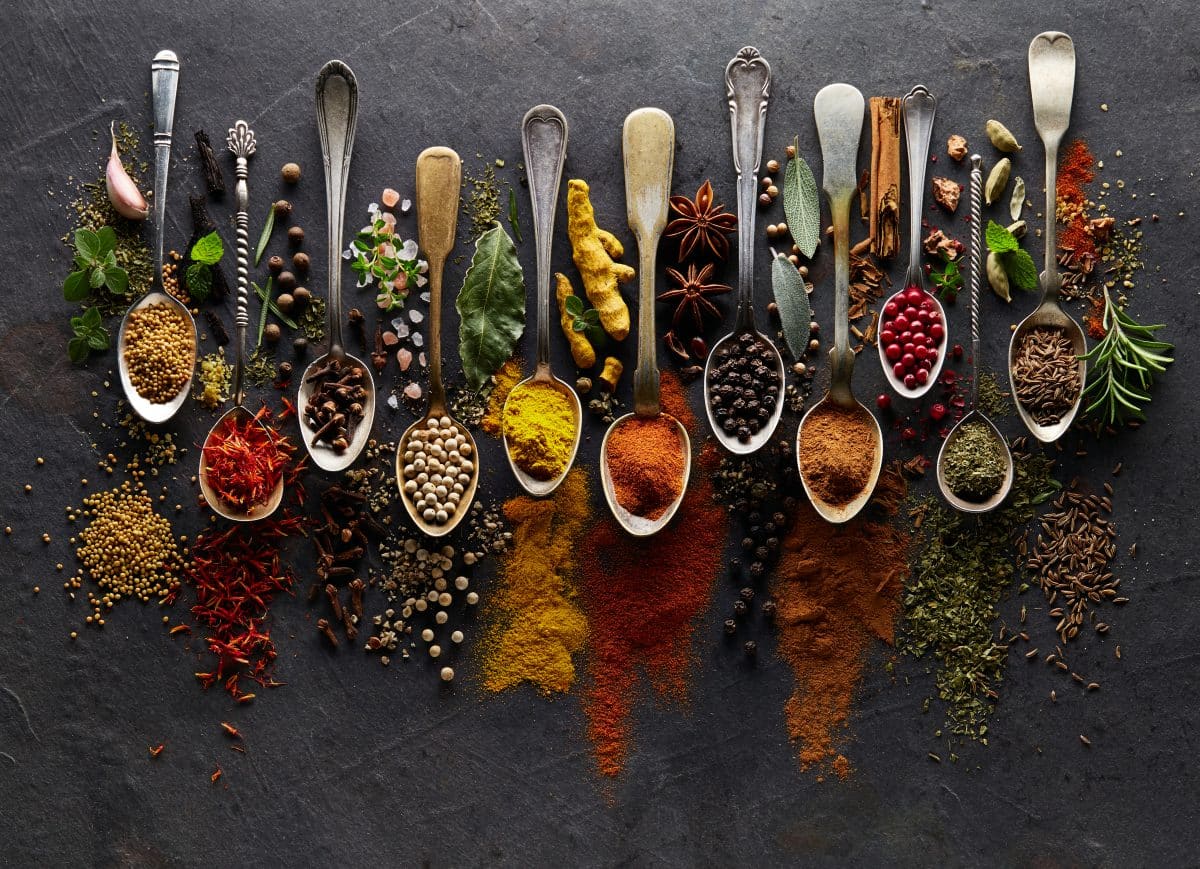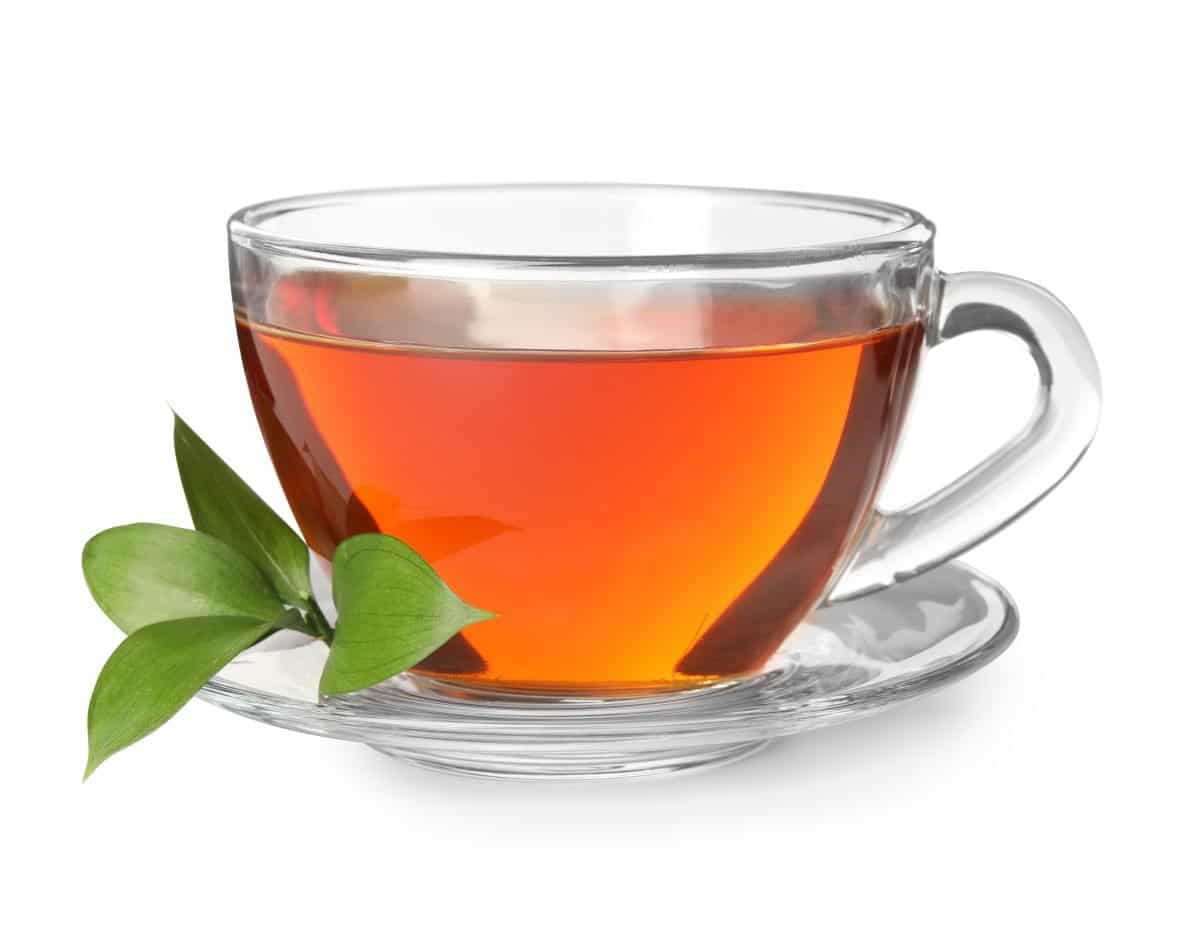Herbs for IBS – A guide on how to use herbs to improve symptoms
- Dietary Advice (non Low FODMAP)
Ever heard of using herbs for IBS symptoms?
Perhaps you have tried numerous medications for your IBS symptoms that have not worked for you and are looking to trial something more natural.
Up to 40% of individuals with IBS trial different herbs to relieve symptoms in IBS, so you are not alone (1).
We just need to know if herbs for IBS can actually work and not make any symptoms worse for you.
You may prefer the idea of trying herbs for IBS but it is known that medications are better regulated than herbal medicines, so it might be worth a discussion with your doctor.
That’s not to say that medication is the be all and end all. Read on to find out which herbs could be suitable for IBS.

Do herbs reduce IBS symptoms?
First, let’s look at the research currently available.
One study asked thirty-two participants with diarrhoea predominant IBS to consume a traditional Indian herbal mix or a placebo twice daily for one month (2).
The herb mix contained curry leaves, pomegranate and turmeric from Ayurvedic medicine (Traditional Indian Medicine) (2).
These herbs are thought to reduce how quickly poop and waste pass through the bowels and contain anti-inflammatory properties.
Sadly, the study did not show any significant differences between the placebo and intervention group for abdominal bloating, pain, satisfaction with bowel habits or interference with daily life (2).
To note, this was a small sample size and a short test period – potentially different results could have been found with a larger sample size and longer test period.
Other studies looking at inflammation and herbs have been carried out but only in mice and petri dishes. Therefore, evidence for the effectiveness of such herbs is limited in humans (3).
You may have heard of Chinese herbal medicine. Chinese herb formulas depend on the region, ailment, mode of delivery, duration, follow up and often practitioner (4).
However, some specific types of Chinese herbs for IBS where diarrhoea is the predominant symptom (IBS-D) have been tested, including:
- Modified Tong Xie Yao Fang (M-TXYF) (2) – an ancient Chinese medicine formula comprising of four different chinese herbs
- Shugan Jianpi Zhixie (SJZT) (5) – another formula known for soothing the liver and invigorating the spleen, this formula can consist of up to ten different chinese herbs (6).
M-TXYF is commonly used and the claimed mechanism in helping IBS-D suggests reducing bowel movements through inhibiting serotonin and calcium flow (7, 8).
A meta-analysis in 2021 confirmed that participants administering the Chinese herbal medicine had better IBS relief compared to those on the placebo (7).
Participants saw improvements in abdominal pain, bowel movement disorders and abdominal discomfort. However, it was noted that some side effects were reported.
These side effects included; nausea, diarrhoea, bloating or constipation. Although, they were mild and treated well.
To summarise the evidence on different herbal remedies is mixed!
Until further research becomes available, standardisation of herbs used and the quality of research improves, we can not say whether herbs are suitable in the treatment for IBS.
I’m on a low FODMAP diet for my IBS, what herbs are suitable for me?
If you are following a low FODMAP diet, this article discusses which low FODMAP herbs are suitable whilst on this diet.
Herbal tea
Herbal teas are made from dried fruits, flowers, spices, or herbs.
Certain teas are known to help with certain symptoms. You may be familiar with peppermint tea and its soothing effects on abdominal bloating, gas and indigestion.
However, having peppermint in the form of a tea has not been researched specifically. Only peppermint oil capsules.
Other teas known for their calming effects on gut associated symptoms and the mind are chamomile. Bear in mind that chamomile tea has a high content of fructans.
Fructans are part of the FODMAPs that can worsen IBS symptoms (9). If this is a known trigger for your IBS symptoms, it would be best to avoid this herbal remedy.
If you’re a fan of herbal teas and suffer particularly with constipation read this article for herbal tea for constipation.
Herbal teas can be a good alternative to caffeine-containing favourites such as tea or coffee (10). Caffeine is commonly a trigger for IBS symptoms.
What are the best teas for IBS?

If herbs don’t work for my IBS, what can I try?
If herbs do not work for your IBS then you may want to try other natural ways to treat IBS.
We also have a number of other posts which cover a variety of methods to improve IBS symptoms; You might actually save some money if any of these work for you – bonus!
- A low FODMAP diet
- Probiotics for IBS
- Managing mental health to help IBS – does CBT work for IBS?
- 4 different ways hypnotherapy can help you combat IBS symptoms
- Regular movement – Yoga for IBS
- Trial supplements such as psyllium husk and peppermint oil capsules
- Optimise your sleep
- Optimise your fibre intake – How does fibre affect IBS?
Monitor your caffeine intake – does coffee trigger IBS?
Summary
Overall the evidence is still limited in the use of herbs and herbal remedies in improving IBS symptoms.
Currently peppermint oil capsules are the only evidenced-based herbal remedy to improve IBS symptoms.
Other alternatives would not be recommended by doctors or dietitians specifically for IBS.
Before spending your money on exotic herb mixes, why not try going back to basics for IBS on how to improve the symptoms for you from the tips and articles included throughout.